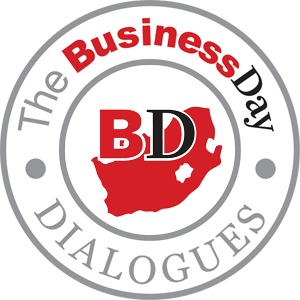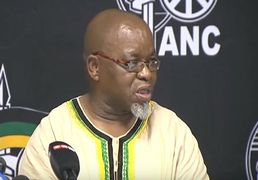THE roll-out of broadband is proving a key service delivery marker in the run-up to the elections, with authorities in Cape Town saying the city’s own fibreoptic network would be crucial in bridging the digital divide.
A number of free Wi-Fi initiatives have been launched across South Africa in the past few months, as broadband has become a key priority for provincial governments — especially Gauteng and the Western Cape. Johannesburg and Cape Town are involved in a race, each seeking to prove it is responsive to the needs of residents.
Cape Town mayor Patricia de Lille told a media briefing on Wednesday that the city’s fibreoptic network was now robust and extensive enough to be leveraged off by the private sector.
She said Cape Town had concluded agreements with service providers which have taken up the spare infrastructure capacity generated via Cape Town’s broadband network. This would improve access to broadband and make it cheaper.
This week, Johannesburg mayor Parks Tau said the roll-out of the city’s broadband network, at a cost of R1bn, would be completed this year. He said he intended rolling out 1,000 Wi-Fi hot spots in the city before the end of his mayoral term in 2016.
The Democratic Alliance-led City of Cape Town, along with the Western Cape provincial government, have sought to position themselves as leaders in the roll-out of broadband to poor areas.
Cape Town has set aside R222m over three years towards the roll-out of broadband infrastructure throughout the metro, which is part of the city’s R1,3bn broadband infrastructure programme, to be completed over seven to 10 years.
Ms de Lille said smaller operators could now use the city’s broadband infrastructure to enter the market, generating competition in the internet service provider (ISP) sector and stimulating economic growth in the Western Cape.
According to Ms de Lille, the city’s fibreoptic cables provide the backbone of wireless networks now being tested in Khayelitsha and Mitchells Plain. "Once the technical model has been finalised, this will bring internet connectivity and other telecommunications services to over a million people living in areas which the private sector has not serviced adequately until now."
City authorities said they aimed to "bridge the digital divide" by opening the information highway to less advantaged communities especially.
To date, lease agreements have been concluded with eight third-party licensed network operators, and negotiations are progressing with 20 more, including some of South Africa’s large telecoms firms.
Ms de Lille said "last mile" connections to commercial buildings were being made, which would allow businesses to utilise high-speed telecoms networks for access to converged services and faster, cheaper and more reliable internet connectivity.
"The project has been a spectacular success as the city has both contained and reduced its actual spending on telecommunications whilst greatly expanding the speed (3,000 times faster than before the roll-out of the broadband project) and capacity of the network that connects city buildings and supports the work of each department," Ms de Lille said.
She said the city had already seen financial benefits from its investment in broadband. Thus far, it had saved R47,6m in telecommunications costs and avoided R70m in bandwidth costs for the 2013-14 financial year.
THE roll-out of broadband is proving a key service delivery marker in the run-up to the elections, with authorities in Cape Town saying the city’s own fibreoptic network would be crucial in bridging the digital divide.
A number of free Wi-Fi initiatives have been launched across South Africa in the past few months, as broadband has become a key priority for provincial governments — especially Gauteng and the Western Cape. Johannesburg and Cape Town are involved in a race, each seeking to prove it is responsive to the needs of residents.
Cape Town mayor Patricia de Lille told a media briefing on Wednesday that the city’s fibreoptic network was now robust and extensive enough to be leveraged off by the private sector.
She said Cape Town had concluded agreements with service providers which have taken up the spare infrastructure capacity generated via Cape Town’s broadband network. This would improve access to broadband and make it cheaper.
This week, Johannesburg mayor Parks Tau said the roll-out of the city’s broadband network, at a cost of R1bn, would be completed this year. He said he intended rolling out 1,000 Wi-Fi hot spots in the city before the end of his mayoral term in 2016.
The Democratic Alliance-led City of Cape Town, along with the Western Cape provincial government, have sought to position themselves as leaders in the roll-out of broadband to poor areas.
Cape Town has set aside R222m over three years towards the roll-out of broadband infrastructure throughout the metro, which is part of the city’s R1,3bn broadband infrastructure programme, to be completed over seven to 10 years.
Ms de Lille said smaller operators could now use the city’s broadband infrastructure to enter the market, generating competition in the internet service provider (ISP) sector and stimulating economic growth in the Western Cape.
According to Ms de Lille, the city’s fibreoptic cables provide the backbone of wireless networks now being tested in Khayelitsha and Mitchells Plain. "Once the technical model has been finalised, this will bring internet connectivity and other telecommunications services to over a million people living in areas which the private sector has not serviced adequately until now."
City authorities said they aimed to "bridge the digital divide" by opening the information highway to less advantaged communities especially.
To date, lease agreements have been concluded with eight third-party licensed network operators, and negotiations are progressing with 20 more, including some of South Africa’s large telecoms firms.
Ms de Lille said "last mile" connections to commercial buildings were being made, which would allow businesses to utilise high-speed telecoms networks for access to converged services and faster, cheaper and more reliable internet connectivity.
"The project has been a spectacular success as the city has both contained and reduced its actual spending on telecommunications whilst greatly expanding the speed (3,000 times faster than before the roll-out of the broadband project) and capacity of the network that connects city buildings and supports the work of each department," Ms de Lille said.
She said the city had already seen financial benefits from its investment in broadband. Thus far, it had saved R47,6m in telecommunications costs and avoided R70m in bandwidth costs for the 2013-14 financial year.














 News, views and analysis of South Africa's national and provincial elections on May 7 2014
News, views and analysis of South Africa's national and provincial elections on May 7 2014












Change: -0.47%
Change: -0.57%
Change: -1.76%
Change: -0.34%
Change: 0.02%
Data supplied by Profile Data
Change: -1.23%
Change: -0.37%
Change: -0.47%
Change: 0.00%
Change: -0.42%
Data supplied by Profile Data
Change: 1.39%
Change: 1.50%
Change: 1.24%
Change: 1.18%
Change: 1.17%
Data supplied by Profile Data
Change: 0.09%
Change: -0.63%
Change: 0.13%
Change: -1.38%
Change: -1.73%
Data supplied by Profile Data